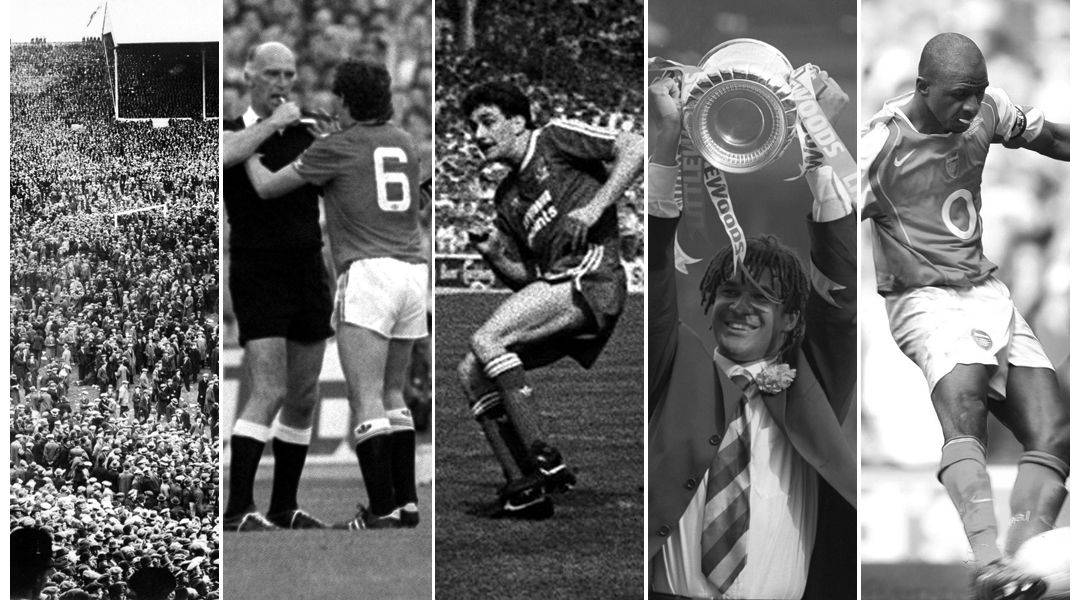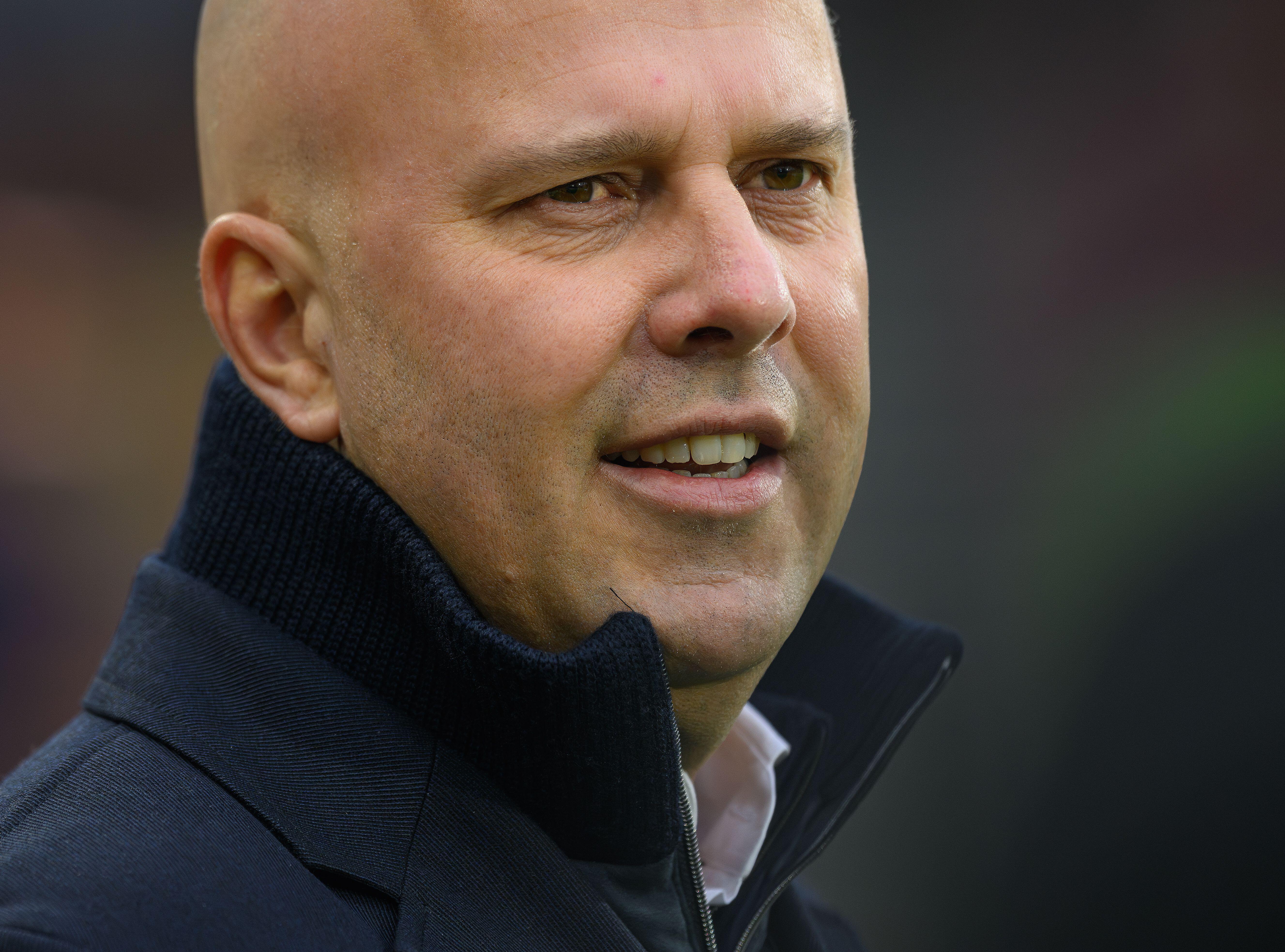Hats, hacks and Hafnia: FA Cup firsts and trailblazers
The long and glorious history of the FA Cup final has produced its fair share of curious firsts, says Olly Ricketts...

This Saturday’s Wembley showpiece between Arsenal and Aston Villa will be the 134th FA Cup final. Short of Tim Sherwood becoming the first manager to use the word ‘slag’ in a post-match press conference, just about everything that could happen has happened in this great showpiece...
Goals
The first ever FA Cup final goalscorer was Morton Betts, whose strike settled the 1872 final for Wanderers against Royal Engineers in front of 2,000 people at Kennington Oval. Betts, who played the final under the school-honouring pseudonym AH Chequer, was a defender – a rarity when the formation was usually 1-1-8 – but his only England cap came as a goalkeeper.
The first player to score in every round of the FA Cup was Aston Villa’s cup-lifting captain Archie Hunter in 1887. Since then, 11 others have managed it, with an honourable mention to non-league Tottenham’s Sandy Brown in 1901. Chelsea’s Peter Osgood was the last to achieve it in 1970 – and with big clubs resting key players in early rounds it may be a while before someone repeats the feat.
FA Cup final hat-tricks are scarcer still. William Townley was the first, hitting a treble in Blackburn Rovers’ 1890 victory over The Wednesday. James Logan did similar for Notts County in 1894 against Bolton, who were also the defeated team in 1953 when Blackpool’s Stan Mortensen became perhaps the most unjustly overlooked FA Cup finalist in history, bagging three and still seeing the match referred to forever more as the Matthews Final. No player has scored a final hat-trick since; you could get quite good odds on a Tom Cleverley hat-trick in a match subsequently dubbed the Delph Final.
Penalties
The first penalty to be scored in an FA Cup final was by Albert Shepherd for Newcastle United against Barnsley. Given that Newcastle went on to lift the trophy, that probably gives some idea of just how long ago it was (1910). Shepherd had scored a penalty on his home debut for the Magpies, against Sunderland; sadly for him, the visitors scored nine in what is still the club’s biggest home defeat.
Get FourFourTwo Newsletter
The best features, fun and footballing quizzes, straight to your inbox every week.
A common misconception among thirtysomethings is that John Aldridge’s unconverted penalty for Liverpool against Wimbledon in 1988 was the first fluffed FA Cup final spot-kick. Actually, Charlie Wallace missed one for Aston Villa in the 1913 final; the difference is, Wallace missed the target altogether whereas Dave Beasant saved Aldridge’s tame effort – and whereas the Dons beat Liverpool, Villa went on to beat Sunderland with Tommy Barber scoring from a Wallace corner.
The first side to win an FA Cup final via a penalty shootout was Arsenal in 2005 against Manchester United. This final is also worth noting as the most flagrant example of daylight robbery in a final since Arsenal’s collapse to Liverpool, courtesy of Michael Owen's late brace at the Millennium Stadium, in 2001.
Foreigners
Overseas players have been a part of FA Cup final folklore ever since way back in 1876 when American-born Julian Sturgis played for the Old Etonians against Wanderers. Since then, who can forget Bert Trautmann becoming the first finalist (for Man City against Birmingham in 1956) to have a surname that sounds like a low-rent superhero? Oh, and there was also something about playing with a broken neck...
The first foreign player to score in an FA Cup final was Newcastle United’s Chilean striker George Robledo, who netted against Arsenal in the 1952 final. Ruud Gullit was the first foreign manager to win the cup (for Chelsea against Middlesbrough in 1997). At the risk of flying into a Farage, this opened the floodgates: since then the only British managers to win the FA Cup are Alex Ferguson (twice) and Harry Redknapp.
Unwanted trailblazers
Poor Lord Kinnaird. In 1877 the Wanderers goalkeeper became the first player to score an own goal in an FA Cup final, stepping over his own goal-line after comfortably catching a long-range effort from an Oxford University player. And all he had to fall back on was the small family business, which became Barclays Bank. (He also appeared in nine of the 11 finals between 1873 and 1883, winning five of them as well as playing in every position on the pitch, before becoming FA chairman.)
The first FA Cup final red card was wafted at Manchester United’s Kevin Moran, who was given his marching orders for a particularly impressive challenge (high, late and arguably the last man) on Everton’s Peter Reid in the 1985 final. It mattered little in the end though, as United won the match regardless.
Since then, only one other player has been sent off in the final (Arsenal's José Antonio Reyes in 2005). If that suggests that referees lean toward the lenient, Nottingham Forest’s Gary Charles would no doubt agree, having been hacked by Tottenham Hotspur’s Paul Gascoigne with such ferocity that the Geordie ruptured his own cruciate in the process. Stuart Pearce opened the scoring at Wembley from the free-kick, but Gazza’s replacement Nayim was involved in the equaliser and took the corner from which Des Walker’s own goal decided the 1991 final. They’re still not over it at the City Ground.
Commercial trailblazers
The first FA Cup final to be filmed was the 1901 final. The grainy footage of Tottenham vs Sheffield United seems to suggest that high-level football at the turn of the last century was much like the 24-a-side games you have as children which involves everyone running wherever the ball goes with scant regard for shape. Also, it suggests that all adult males were legally obliged to wear a flat cap at all times.
The first final to be shown live on television was Preston vs Huddersfield in 1938. The dourness of the match prompted BBC commentator Thomas Woodroofe to exclaim during the final minute of extra-time that “if there is a goal now, I’ll eat my hat”. Brilliantly, Preston were awarded a penalty mere seconds later, which was (just about) converted by George Mutch. Woodroofe, to his credit, did indeed eat a hat live on television, although it was made from cake and therefore not a proper hat.
Aside from the first FA Cup final to be shown in colour (West Bromwich Albion 1-0 Everton in 1968), the next major change was the introduction of shirt sponsors. Although shirt sponsorship had been creeping into the game for several years, the first time it was allowed in the final was 1984, meaning that the first FA Cup-winning sponsor was Hafnia. Although sharing a name with a genus of facultatively anaerobic rod-shaped bacterium, Everton’s sponsor actually made canned meat products, so although Evertonians claim to be ‘born not manufactured’, they may not apply the same rigour to ham.

The FA Cup final truly entered the commercial age in 1994/95, when the FA sold sponsorship rights to the competition itself. Littlewoods were the lucky company; within a decade they had been bought out and most of their shops closed down.
And finally
Manchester United can lay claim to the supreme honour of being the FA Cup’s first ever third-place team, winning a Highbury play-off against Watford on the eve of the 1970 cup final. The play-off only lasted until 1974, mainly because it was rubbish.

